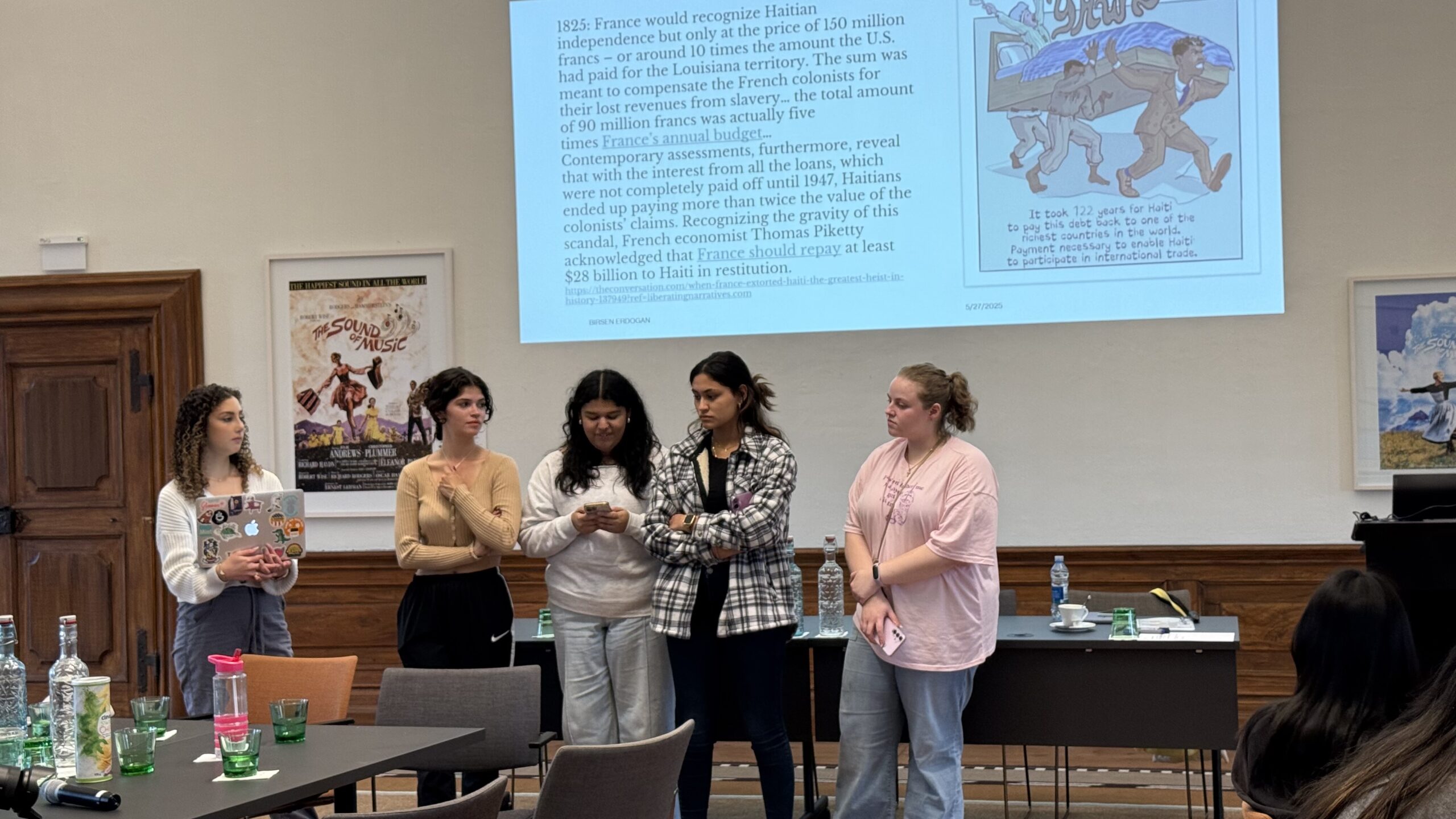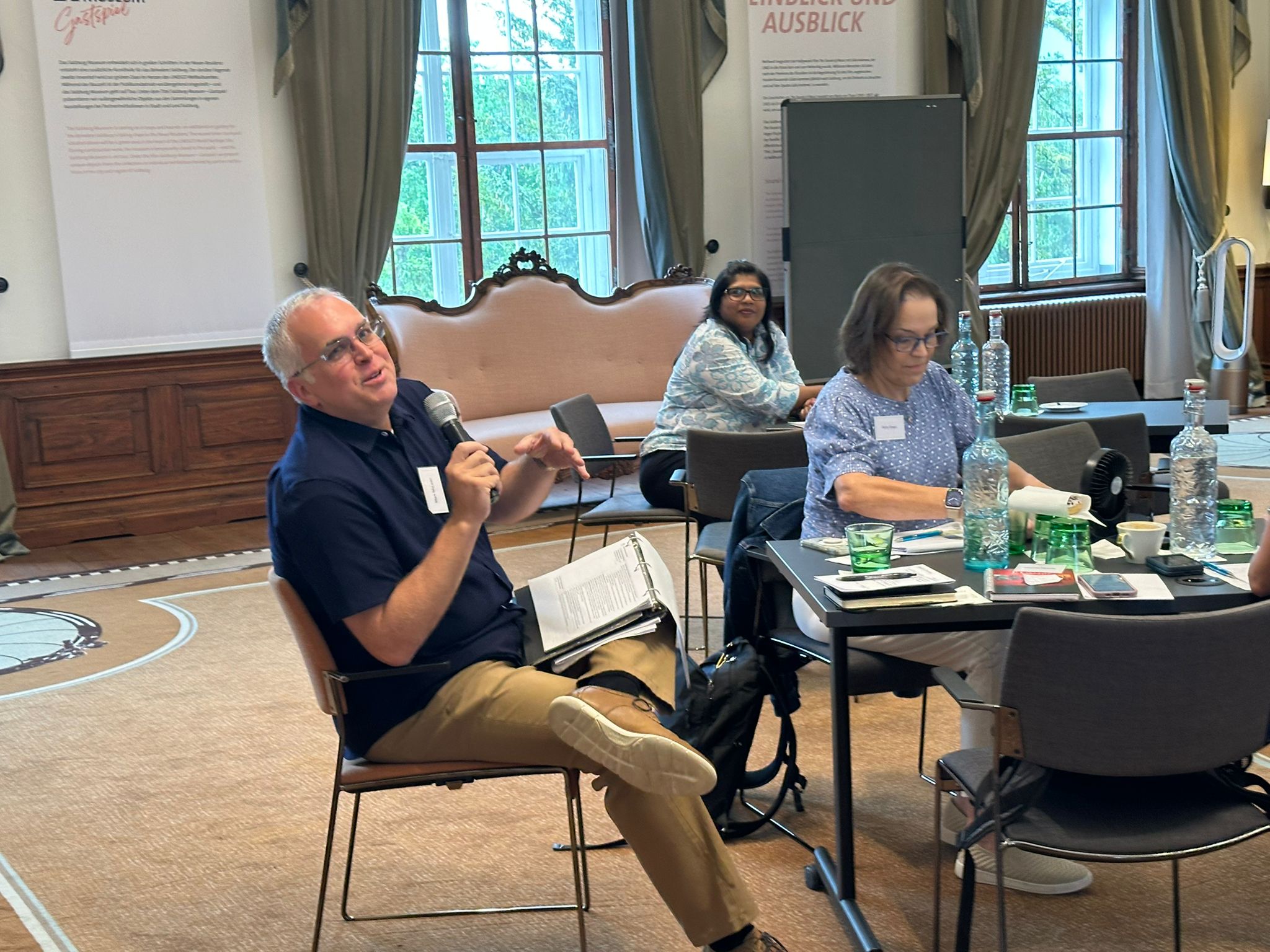General Information
Seminars for Students

The seminars for students provide a space for participants to critically engage with the central questions of the new global world order. In an international setting, participants have the opportunity to encounter perspectives that literally and figuratively lie outside the borders of the U.S. What does globalization mean for our economic, political, cultural and social realities and what are our civic responsibilities in the context of the changes brought on by globalization? In what ways does the often disruptive impact of globalization require new forms of cooperation that simultaneously include and transcend the nation state? What does it mean to be a global citizen in an interdependent world and how can we translate this knowledge into action – in one’s everyday personal and professional life?
With changing thematic foci (e.g. sustainable development, human rights, refugees and migration), the seminars expose students to the idea of cosmopolitanism in a way that allows participants to develop the knowledge and commitment to attach their own meaning to the adage of “think globally, act locally.”
Seminars for Faculty & Administrators

The seminars for faculty and administrators focus primarily on supporting partner institutions as they develop strategies and programs to make education for responsible global citizenship the converging point in their students’ quest for knowledge and identity. This requires higher education institutions to determine what students need to know (regardless of the discipline they study) in order to lead productive and rewarding lives as future professionals and as active citizens within an increasingly interdependent world struggling for balance. To meet this challenge, our seminars provide a space for members of college and university communities to reflect on their overarching missions and develop innovative ways to re-orient their teaching and research.
Including the broad concepts of global citizenship and engagement into the institutional fabric of the specific institutions requires a long-term institutional commitment. Starting and sustaining this type of work also requires the engagement and support of a dedicated group of critical stakeholders composed of the faculty, staff, and administrators. Our seminars often serve as the catalyst for establishing, maintaining and expanding such dedicated groups.
Becoming Involved
Our programs are open to any college or university committed to:
- Bringing students to our Student Seminars
- Sending faculty/administrators to our Faculty Programs
- Collaborating with us to design tailored local initiatives, such as workshops or short seminars that address specific institutional needs
- Or pursuing any combination of the above
Some institutions begin with a focus on faculty and institutional development, while others view the GCA programs primarily as opportunities for student global learning and international engagement.
Participation can start on a small scale—by sending just a few students or faculty members to one of our programs—to gain first-hand experience with our work and explore whether a deeper partnership and larger commitment would be mutually beneficial.
Beginning in 2026, GCA will also welcome individual applications from students, faculty, and administrators worldwide, further enriching the diversity and reach of our programs.
Costs of participation 2026
Institutional Partners:
- Student Seminars: US $2,450 per student and US $2,450 per faculty advisor accompanying a student group
- Faculty & Administrator Seminars: US $3,250 per participant
Individual Applicants:
- Student Seminars: US $2,750 per student
- Faculty & Administrator Seminars: US $3,650 per participant
What’s Included: Fees cover all program costs, full room and board, and sponsored activities or field trips. Airfare is not included.
Currency Adjustment: Because all program operations are based in Austria and charged in Euros, an additional fee of up to 10% may be applied to account for Dollar–Euro exchange rate fluctuations.
Calendar of GC Seminar Sessions 2026-2028
2026
Student Sessions:
GC Seminar 36: Feb. 20-27
GC Seminar 37: April 3-10
GC Seminar 38: May 23-30
GC Seminar 39: June 2-9
Faculty/Administrators Seminar 40:
July 13-20
2027
Student Sessions:
GC Seminar 41: Jan. 3-10
GC Seminar 42: Feb. 26-March 5
GC Seminar 43: April 23-30
GC Seminar 44: May 30-June 6
GC Seminar 45: June 6-13
Faculty/Administrators Seminar 46:
July 7-14
2028
Student Sessions:
GC Seminar 47: Feb. 25-March 3
GC Seminar 48: April 9-16
GC Seminar 49: May 24-31
GC Seminar 50: May 31-June 7
Faculty/Administrators Seminar 51:
July 7-14